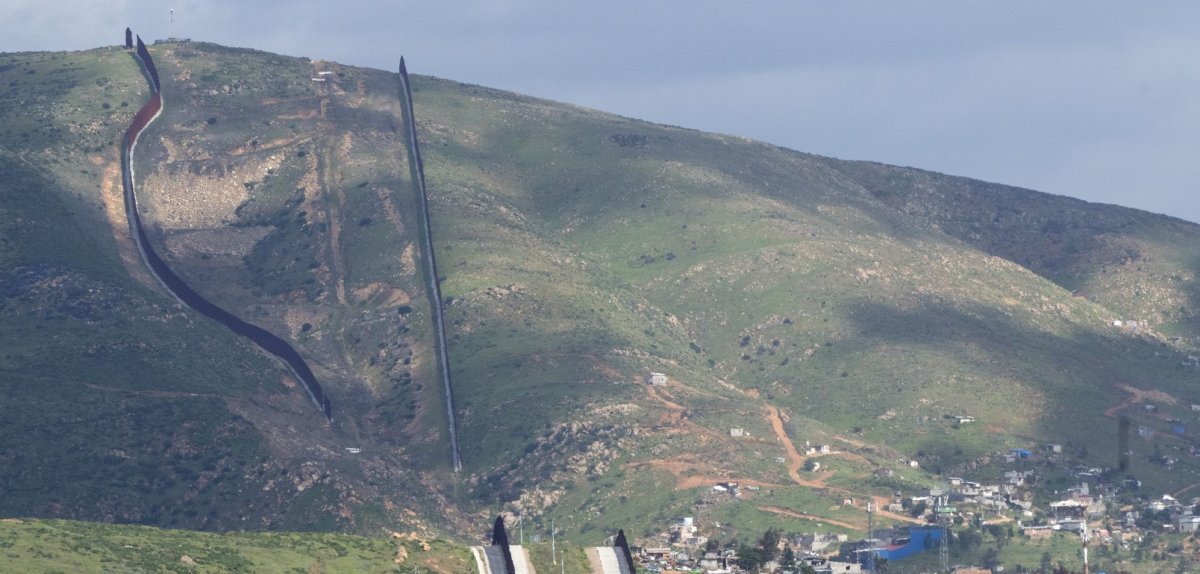Disclaimer: This article contains information about a criminal act and may be distressing for some readers. Please read at your own discretion.
In a significant crackdown, a multi-agency operation has led to the indictment of a major transnational criminal organization based in Guatemala.
This organization is accused of smuggling thousands of foreign nationals through Mexico into New Mexico and across the United States.
The smuggling operation primarily focused on New Mexico, Arizona, California, and western Texas, particularly around the El Paso region.
Once these foreign nationals reached border states, they were further smuggled to Virginia, Florida, and other distant states, using the U.S. banking system to facilitate the process.
According to the source, U.S. Attorney Alexander Uballez for the District of New Mexico revealed that a grand jury indictment issued in May was recently unsealed.
This indictment charges eight leaders of the Guatemala-based Lopez Human Smuggling Organization with “conspiracy to bring in, transport, and harbor illegal aliens.”
The Lopez Human Smuggling Organization is believed to have generated between $104 million and $416 million from human smuggling operations between September 2020 and April 2023, according to Uballez.
So far, law enforcement officials have arrested six alleged members of the organization in California, Arizona, and Florida in a coordinated, multistate enforcement operation.
The U.S. Treasury Department’s Office of Foreign Assets Control (OFAC) also took action by sanctioning the organization and freezing its members’ assets.
According to the indictment, Ronaldo Galindo Lopez-Escobar, also known as “Tio Roni,” aged 46, of Malacatan, Guatemala, is believed to be the leader of the organization in Guatemala.
He, along with nine co-defendants, was charged with “conspiracy to bring in, transport, and harbor illegal aliens” in May. However, Lopez-Escobar remains a fugitive.
Two key figures in the operation, Elvis Bersai Lopez-Ambrosio (“Pepe”) and Whiskey Hans Lopez-Ambrosio (“Hands”), worked with Mexican cartel human smugglers to move foreign nationals from Guatemala through Mexico into southern New Mexico.
This operation involved individuals such as Jumilca Sandivel Hernandez-Perez and a La Linea Cartel member known by several aliases: “Chikis,” “Chiquis,” “Enano,” and “Chicken.”
Once the foreign nationals were smuggled into New Mexico, Elvis and Whiskey allegedly managed “mid-level smugglers” to carry out the next phase of the operation.
These mid-level smugglers included Eli Adonis Esteban-Lopez and Wenry Gabriel Gomez-Lopez, who reportedly handled day-to-day operations, and Karen Stefany Hernandez-Vanegas, who managed the money.
Hernandez-Vanegas allegedly received deposits and made payments to co-conspirators across the country using the U.S. banking system, peer-to-peer money transfer applications, and bulk cash payments.
Elvis is also accused of instructing co-conspirators to open U.S. bank accounts to receive “smuggling fees from smuggled aliens on Elvis’s behalf and in a manner that would be untraceable to Elvis.”
These funds were then allegedly withdrawn and either handed over to Elvis, converted into assets like real estate, or sent to Lopez-Escobar or others in Guatemala.
To further obscure the money trail, wire transfers were allegedly used through money service businesses.
The organization is also accused of purchasing fraudulent Mexican documents and paying cartel fees to facilitate the movement of migrants through Mexico.
As their business expanded, the organization allegedly acquired buses to transport larger groups of migrants to the United States and operated stash houses along the U.S. Southwest border to hide those they were smuggling.
To finance these operations, the organization reportedly relied on U.S. banks and money service businesses to receive payments from the family members of those being smuggled and to pay other members of the organization in Mexico and Guatemala for their services.
If convicted, members of the Lopez organization could face between 10 and 20 years in federal prison.
This action follows the sentencing of leaders from two Texas-based smuggling operations to lengthy prison terms for their roles in a similar human smuggling enterprise that spanned from Honduras to Boston.
Read more news:
- Biden Campaign Mobilizes Across Georgia Ahead of Debate Clash
- Kristi Noem Denies Formal Vetting for Trump’s VP, Focuses on Winning Strategy
OFAC has also recently sanctioned other transnational criminal organizations allegedly involved in human smuggling.
Last month, it sanctioned the Tijuana, Mexico-based Abdul Karim Conteh Human Smuggling Organization and a Venezuela-based operation known as Tren de Aragua, which specializes in “gender-based violence, money laundering, illicit drug trafficking, and other criminal activities.”
